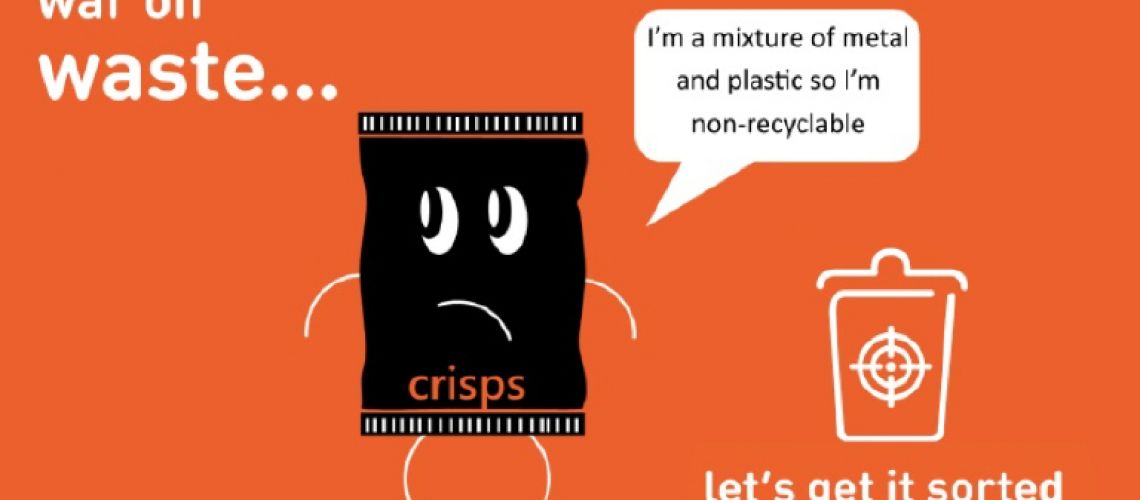Loughborough University ‘War on Waste’
14 Jan 2019
Supporting people to create lasting change
In 2017, Loughborough University began a pilot ‘War on Waste’ scheme in the Wolfson Building. Several changes were introduced with the aim of creating a waste ‘culture change’ by reducing the amount of waste produced, encouraging reuse of materials and improving the quality and quantity of recycling.
To kick off the project, 126 new bins were installed in the building – 84 recycling and general waste bins and 42 food waste bins and caddies. These were complemented by new internal signage to advise people on how to use the bins correctly.
To embed the messages further, engagement methods such as door hangers with ‘send back to the Sustainability Team’ labels on, working group meetings and games were used along with over 8,000 stickers on food produce.
To measure the success of the project, surveys were carried out prior to the changes and again following the trial period. These asked how much people recycle, how confidently they recycled and what they needed to help them recycle more. Surveys of staff and students before and after the project showed that confidence in recycling abilities had increased; 53% of those surveyed felt they were more confident after the campaign.
Pre-intervention surveys
- 88 surveys completed (44 students and 41 staff)
- 90% said they recycle
- 10% mostly
- 93% students and 78% of staff had not read online waste guidance notes
- 62% said better bin signage would be the most important improvement
Post-intervention surveys
- 55 surveys completed (26 staff and 21 students)
- 90% more or the same confidence with recycling
- 76% respondents agreed they had learned something
The surveys found that people perceived new bins and the accompanying posters and stickers were the most useful and memorable techniques used. This was followed by the use of door hangers, on-screen messages and emails.
Findings
The trial was successful in increasing the recycling rate and reducing contamination levels. In November 2017, the average recycling rate stood at 35%. By April 2018, this had increased to 53%, and by June 2018 there was evidence of recycling rates reaching 81.5%, as evidence through one off audits of bin contents.
In addition to the significant increase in recycling, contamination levels decreased. General waste contamination has fallen from 69% to 18% and in recycling there is now only 7% contamination i.e. material that should not be in that bin, like food waste.
Along with the quantifiable results, the pilot study created positive momentum which has led to related student projects, committed academic and domestic services involvement and the continuation of both strategy and engagement level meetings beyond the project’s lifespan.
Future plans
There is significant scope to extend the success of the trial project. By extending it over a longer period of time and incorporating term-time dates, more detailed findings will be established which can in turn aid in future planning and development. For example, using the information gathered in the trials, problematic materials and areas can be identified and specific guidance devised to solve this.
In addition, continual games and engagement activities will be used to further embed the attitudes developed during the trial.
The project was managed by sustainability engagement consultancy, Future We Want.
Please contact: emma@futurewewant.co.uk for further information.

